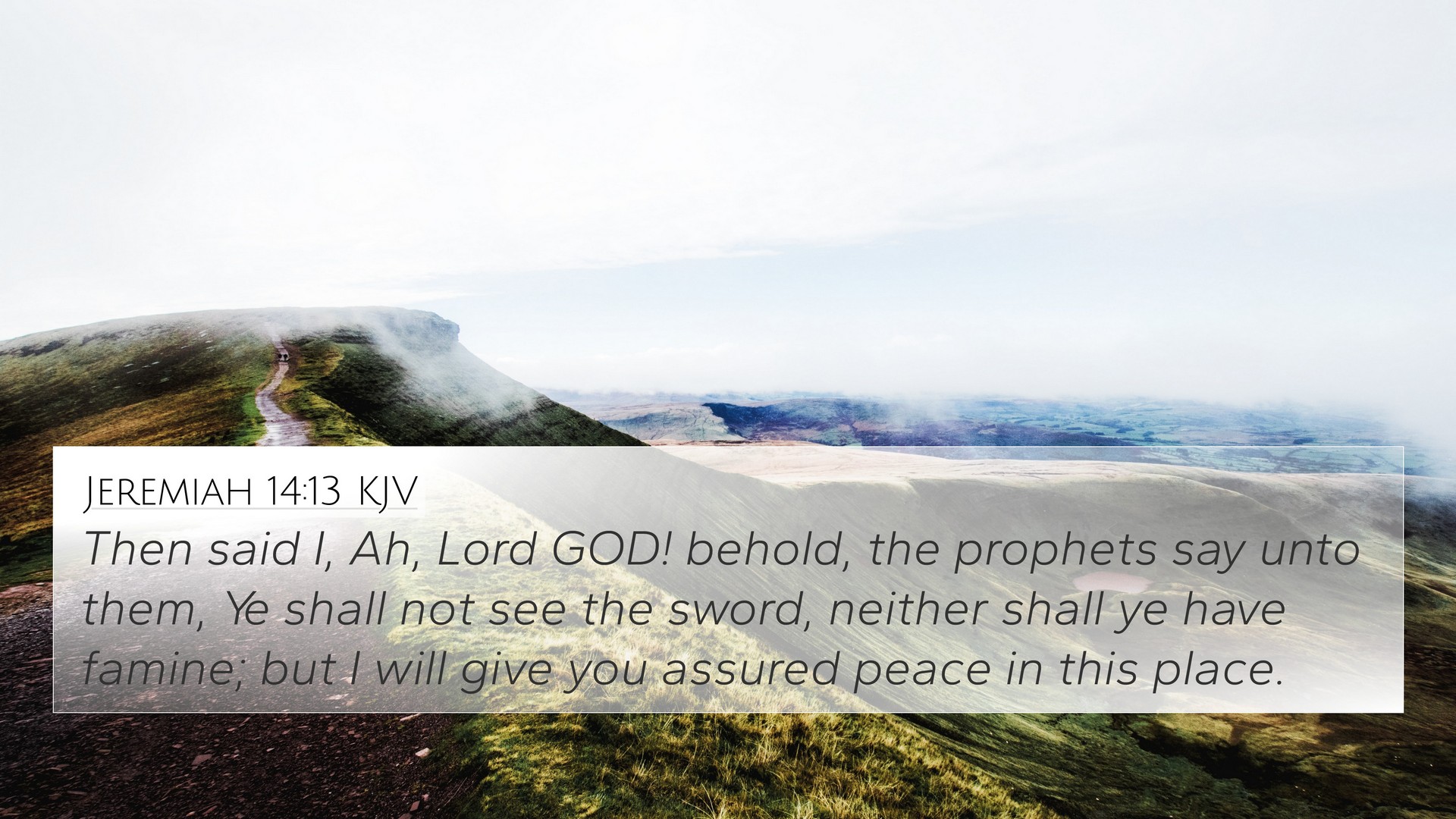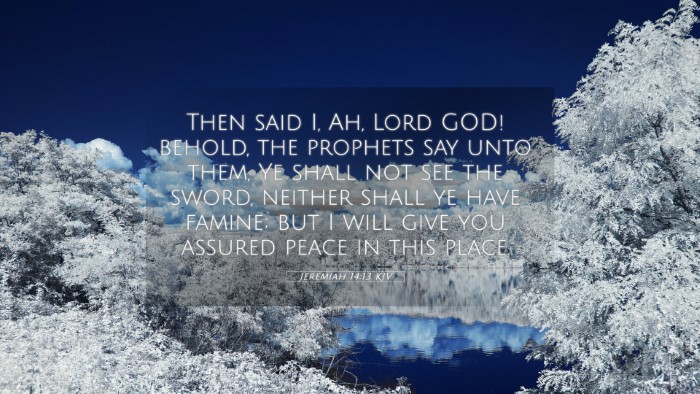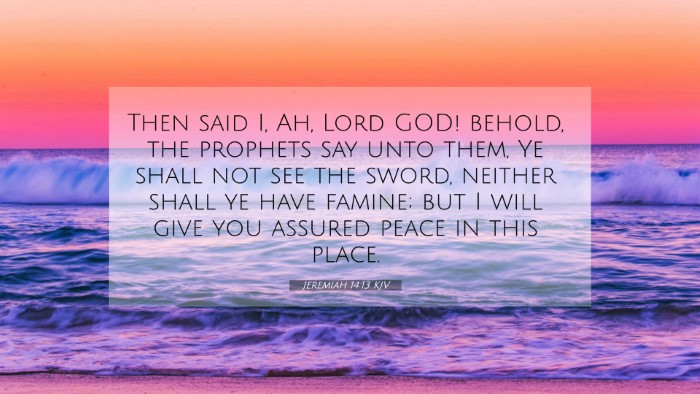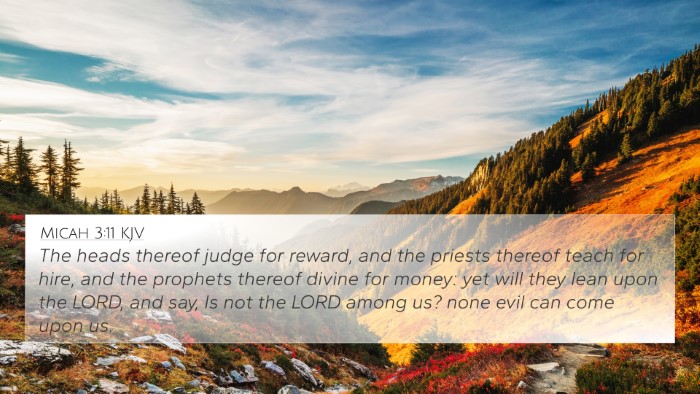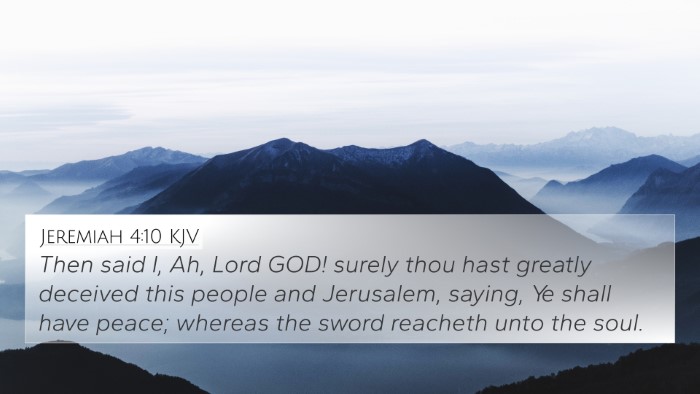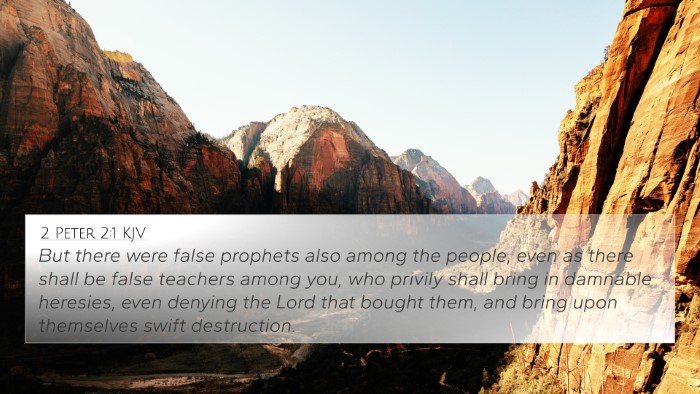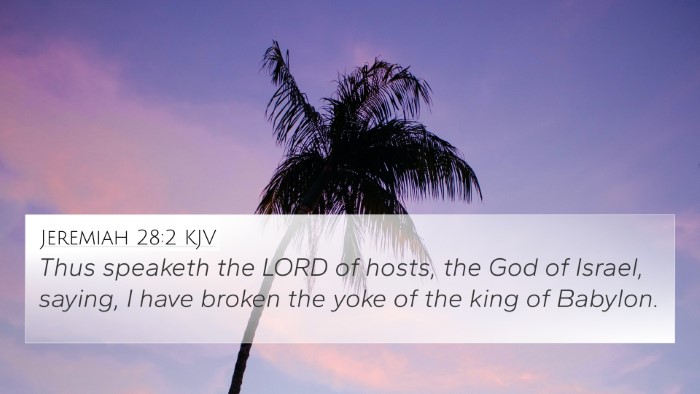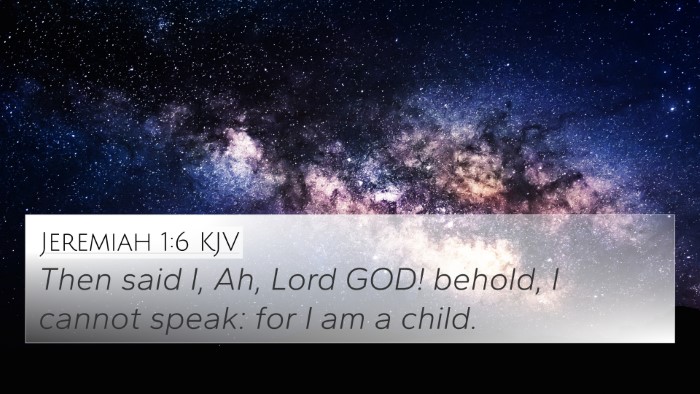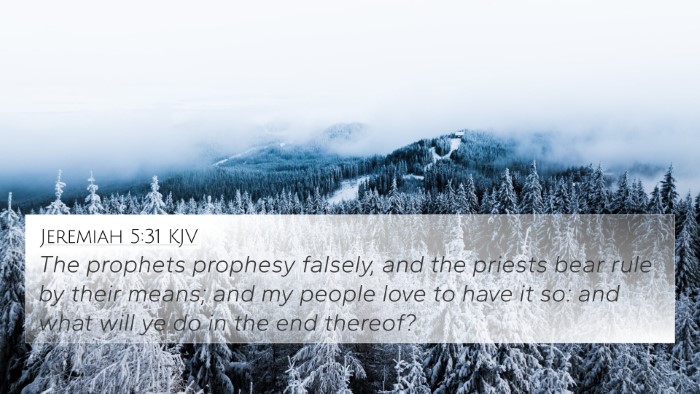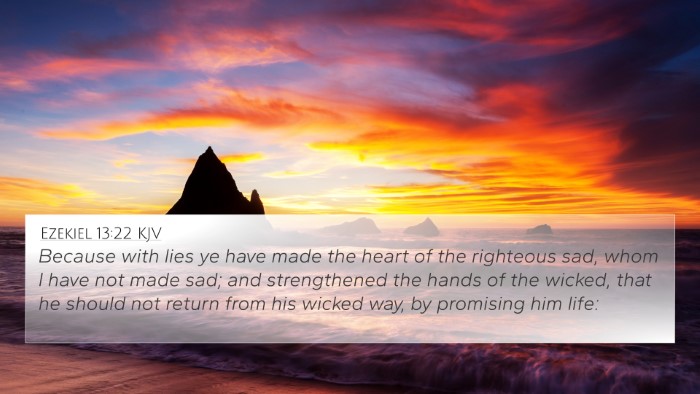Jeremiah 14:13 - Verse Meaning and Interpretation
Verse Text: "Then said I, Ah, Lord God! behold, the prophets say unto them, Ye shall not see the sword, neither shall ye have famine; but I will give you assured peace in this place." - Jeremiah 14:13
This verse reflects a dialogue between the prophet Jeremiah and God, where Jeremiah expresses his concerns about the messages being delivered by other prophets in Judah. These prophets were proclaiming peace and prosperity, contrary to the truth that God had revealed to Jeremiah regarding impending judgment and calamity. The verses encapsulate themes of false prophecy, divine judgment, and the struggle between divine truth and human declarations.
Contextual Overview
This passage occurs during a critical period of Judah's history when the nation faced severe drought and threats from surrounding nations. Jeremiah, known as the weeping prophet, was tasked with delivering an often unwelcome message of warning and judgment from God.
Commentary Insights
-
Matthew Henry:
Henry emphasizes the underlying disconnection between true prophecy and popular acceptance. He points out that the prophets in question were not speaking the Lord's truth but were rather appeasing the people's desires for comfort. Jeremiah, aware of this contradiction, cries out to God, recognizing the peril of such misleading messages.
-
Albert Barnes:
Barnes highlights the role of prophets in communicating God's messages and contrasts the true prophet's integrity with those who seek to gain favor through falsehood. He notes that Jeremiah's appeal to God illustrates the despair and confusion caused by conflicting messages and the divine necessity for truthful guidance.
-
Adam Clarke:
Clarke points out the specific promises made by the false prophets, stressing that they were a direct challenge to God's revealed word. He discusses the themes of reassurance versus reality, suggesting that although it brought temporary comfort to the people, such declarations ultimately led them astray from God's true path.
Thematic Connections
This verse resonates with various themes found throughout Scripture, highlighting the importance of recognizing and adhering to the true word of God amidst conflicting messages. It exemplifies several biblical themes:
- **Divine Judgment:** The prophets' warned messages emphasize the consequences of unfaithfulness.
- **The Role of Prophets:** It reflects the critical responsibility prophets carry in delivering God's messages truthfully.
- **False Peace:** The verse serves as a warning against false assurances of safety and peace.
Cross-References for Jeremiah 14:13
For a deeper understanding, consider these related scriptures:
- Jeremiah 5:12 - Discusses the betrayal of the Lord by His people and the false declarations of peace.
- Ezekiel 13:10 - Describes the false prophets who build a wall of untruths, promising peace when there is none.
- Isaiah 30:10 - A lament regarding the rejection of true prophecy in favor of comforting lies.
- Micah 3:5 - Addresses leaders who mislead and proclaim peace for profit.
- 2 Timothy 4:3-4 - A New Testament warning about people turning away from sound doctrine to follow their desires.
- Jeremiah 8:11 - Highlights the false healing offered to God’s people while they remain unrepentant.
- Matthew 7:15 - Jesus warns against false prophets who appear harmless but can lead people astray.
Application and Reflection
As we explore Jeremiah 14:13, we must reflect on our approach to teachings and prophecies that permeate our lives today. It invites believers to discern truth from falsehood and cling to the promises of God found in Scripture. Understanding that not every voice claiming to speak for God is genuine, believers are encouraged to seek God's Word, supported by tools for Bible cross-referencing and systematic study. This helps in forming accurate interpretations and enduring faith amidst uncertainties.
Conclusion
Jeremiah 14:13 serves as a powerful reminder of the necessity of fidelity to God’s truth in the face of comforting lies. Through the insights of various scholars, we grasp the weight of divine truth contrasted with human desires. As Christians engage in cross-referencing biblical texts, they can better identify links and thematic connections, enriching their understanding and deepening their faith.
